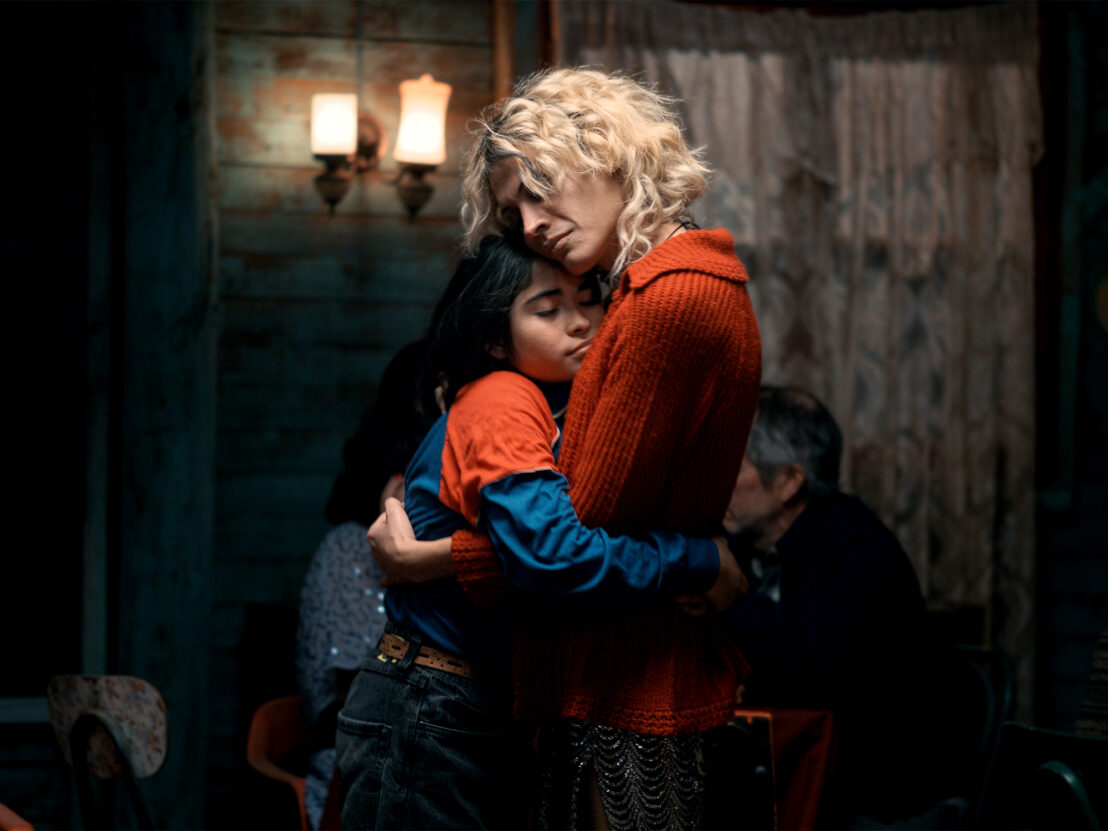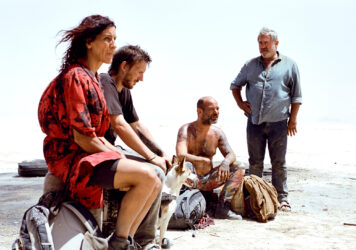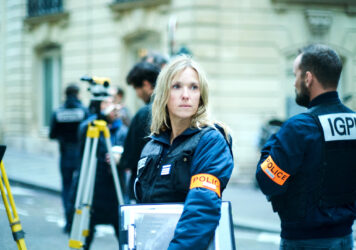
A young girl living in a sleepy Chilean mining town reckons with prejudice that emerges when a mysterious illness sweeps the residents in Diego Céspedes' modern western.
In striking opening credits, boiling copper pours from atop a grey mountain like lava, a sluggish, powerful current that exists as a dichotomy: the light it powers shines over the lands it’s made barren. This mesmerizing sequence is how we are introduced to Diego Céspedes’s atmospheric feature debut, The Mysterious Gaze of the Flamingo, where sex is also a powerful current and, in that, a dichotomy of its own.
It’s 1982 in a small mining village in Chile, where the men have two options for entertainment: violence or sex. More often than not, the two intertwine, aggravated by a lingering sense of shame associated with isolated corners of the world that were once unpopulated and suddenly filled to the brim with male labourers — adult women are scarce. Therein comes the cabaret run by Mama Boa, home to a lively, lovely group of crossdressers with bedrooms filled with a rotation of hungry chasers.
When entering Mama Boa’s house, all her daughters are reborn, baptized with a new name after an animal. Boa bestows the name Flamingo to one of her most beautiful girls, taken by her ever-long, gracious legs. Flamingos, the strikingly pink birds, begin to lose their colour in the nesting period, hormones taking away their one singular feature. But Flamingo the performer is the opposite: when baby Lydia turns up on her doorstep, she immediately steps into motherhood, becoming even more singular, fuller. Flamingo is a mother, but a bird, too, and to the men in the village, she is one to hunt.
Céspedes’s labyrinthine drama flirts with absurdism in building a reality where the dark sores that mark the skin of the men who cross paths with Flamingo are not a virus eating away at the body, but the evil consequence of a mysterious plague, transmitted through looking into each other’s eyes. Interestingly, the Chilean director also nests his debut within the lines of a classic Western, the miners fashioned as gunslinging baddies kicking at the creaking wooden doors of Mama Boa to wreak havoc in search of revenge — and a cure they know won’t come.
It’s a captivating exercise in capturing a specific social malaise, more specifically, how the AIDS epidemic was felt outside the bustling metropolis where conversations around queerness happened in still hostile but much more open forums by comparison. Seen mostly through the eyes of 12-year-old Lydia as she grapples with her mother’s curse, this often tender drama does not shy away from the brutality queer bodies are often subjected to but rebels against making it its gravitational centre. Despite the blood that stains dirt and skin alike, this earnest debut is quick to jump back to compassion, arms that hold one another with ease, laughter that echoes through shallow quarries, beauty that refuses to dim under the weight of ostracisation.
In its ambition to grab many things at once — both formally and thematically — The Mysterious Gaze of the Flamingo stands as if on the legs of its titular bird, a tad wobbly and unsure. But its wobbliness also makes it deeply interesting to look at. Angello Faccini’s stunning cinematography plays with depth to expand small crowded rooms as if entire universes and constrict the vastness of the desert to amplify its inescapability, and Céspedes populates these spaces with a mix of professional actors and first-timers. This assured decision allows not only for the rawness required from such an aching tale of found love and family, but that also turns this confident debut into a display for fresh talent — none more so than its promising young director.
To keep celebrating the craft of film, we have to rely on the support of our members. Join Club LWLies today and receive access to a host of benefits.
Published 16 May 2025

A phenomenal and unique portrait of a group of thrill-seeking ravers entering into a spiritual abyss in this extraordinary new film by Oliver Laxe.

A 12-year-old boy at a water polo summer camp experiences the vitriol of his peers in Charlie Polinger's arresting feature debut.

This robust if hardly revelatory police procedural coasts on an detailed and charismatic lead performance from Léa Drucker.